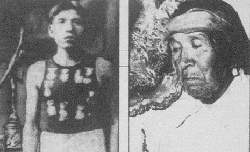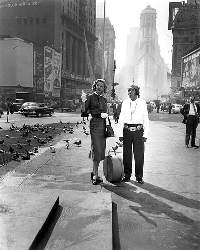- Louis Tewanima

Tewanima - Left photo - Front row, 2nd from left
Tewanima - Right Photo - Back row, First on left
Tewanima was born in Second Mesa, Arizona, a territory in northeastern Arizona, 5000 feet above sea level. As a young boy growing up before the turn of the century, Tewanima tended to sheep and planted vegetables, but always found time for the passion of running, whether it was chasing jackrabbits or making the 60-mile trek to Winslow, Arizona with some of the other boys to watch the trains go by.
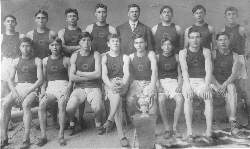
Coach Pop Warner is in the suit (back row center). Tewanima is seated 3rd from the right & Thorpe is seated 4th from the left.
Photo courtesy of the Charlotte Thorpe Collection.
Note: The photo above appears in the book, "Pathway to Glory" (1975), by Robert W. Wheeler, as the 1906 Track Team with the photo credit going to the Cumberland County Historical Society and the Hamilton Library Association Collection.
So when he arrived at the Carlisle Indian School in Carlisle, Pennsylvania, it was only natural that he began hanging around the school's track. It didn't take long for Tewanima to convince Coach Glen (Pop) Warner, who himself had arrived at Carlisle in 1899 from Cornell University, that Tewanima was a talented runner. Warner let Tewanima run competitively for the school and thus began a fascinating career of one of the true Arizona sports legends.
Tewanima was a distance runner who was winning 10 to 15 mile races on a regular basis for Carlisle. In 1908, Tewanima won the cross country race at the University of Pennsylvania and represented the United States in the Olympics in London, England. Tewanima finished ninth in the marathon.
Back at Carlisle, Tewanima paired with a young Native American from Oklahoma, Jim Thorpe, became a team that consistently beat the top colleges in the country in track and field events. Tewanima returned to the Olympics in 1912 at Stockholm, Sweden, and although overshadowed by Jim Thorpe's dominating gold medal performance in the decathlon and pentathlon, the Hopi had much to be proud of.
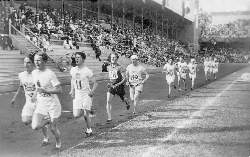
Tewanima won a silver medal in the 10,000 meters with a time of 32:06.6, setting a United States record that stood for 52 years. In 1920, Tewanima won the 20-mile Mardi Gras race in New Orleans, and won the New York Evening Mail Marathon in which 1,014 men competed and set a world record for 10 miles with a victory at Madison Square Garden in New York. He was considered the fastest man in the world at distances between 10 and 20 miles.
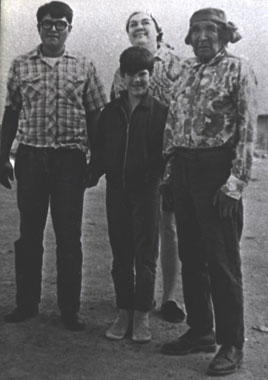
From left: Larry Sekaquaptewa, Grace Thorpe and her son, John Adler, and Louis Tewanima.
Photo courtesy of Charlotte Thorpe Collection.
After the Olympics, Tewanima returned to Arizona and spent the remainder of his life in Second Mesa. In 1954, Tewanima was in New York as part of America's all-time Track and Field Team that was being honored by the Helms Foundation.
Tewanima died in January of 1969 when his faltering eye sight failed him during a walk back from a religious ceremony. He stepped off a 70-foot cliff and plunged to his death. By most accounts, Tewanima was 87 at the time of his death. In 1974, the Hopi Athletic Association began sponsoring the Louis Tewanima cross country race.
Source: Total AZ Sports.com
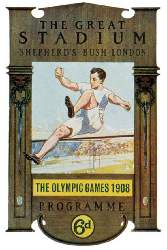
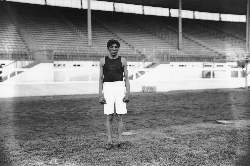
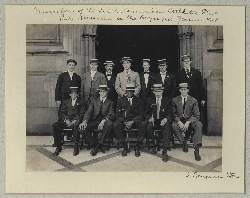
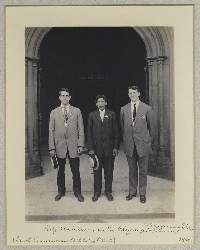
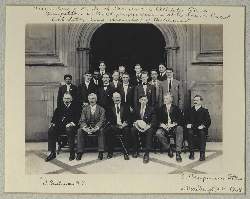
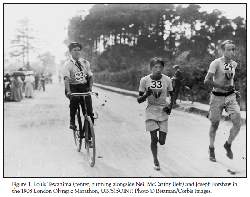
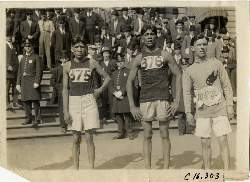
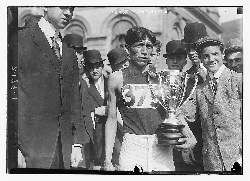
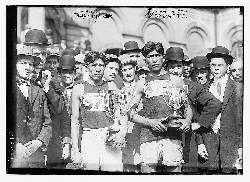
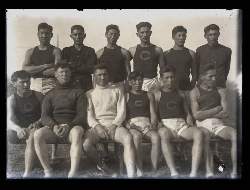
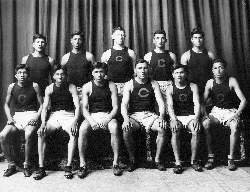
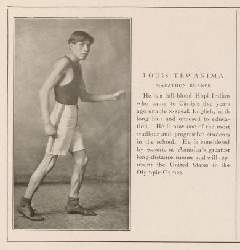

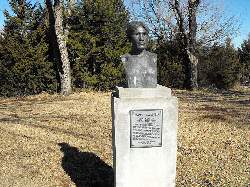
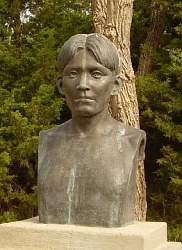
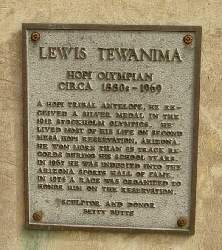
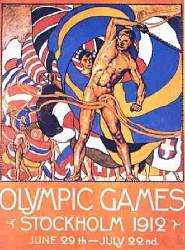
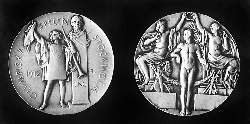
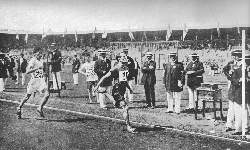
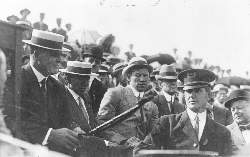
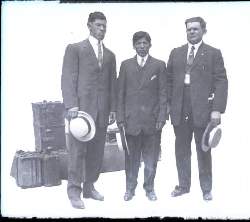
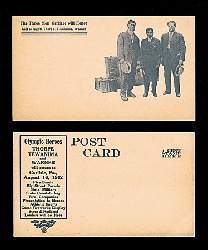
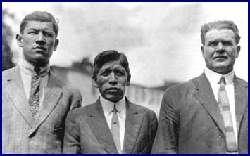
.jpg)
